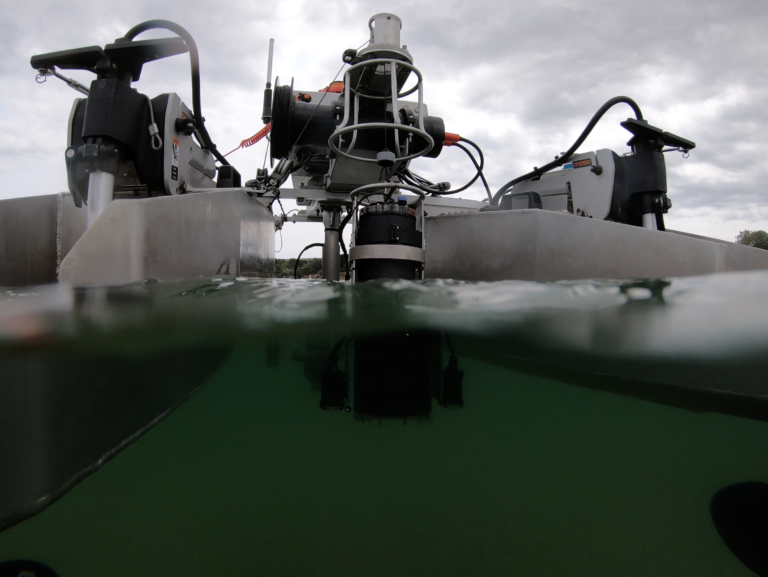HydroSurv, a leading provider of electric and hybrid uncrewed surface vessels (USVs), has secured Innovate UK funding to commercialise an end-to-end seagrass monitoring solution with support from the Department for Environment, Food and Rural Affairs (DEFRA).
The project aims to provide a rapidly scalable, low-impact and comprehensive answer to the numerous challenges of monitoring seagrass meadows by combining HydroSurv USV platforms with an automated data processing toolchain. The robotic solution will be demonstrated over spring and summer 2024 at three designated worksites on the southwest coast of England, conducting baseline and seasonal re-survey work and ultimately delivering some 40 days of on-water testing and data, showing seasonal variation over the project’s nine-month duration.
Dubbed SONARS (Seagrass Observation using Novel Acoustic Remote Sensing), the project will see HydroSurv work with Coastal Marine Applied Research (CMAR) from the University of Plymouth, the Ocean Conservation Trust, Falmouth Harbour and the South Devon Area of Outstanding Natural Beauty.
The technology package has already significantly advanced seagrass mapping capabilities. HydroSurv started to develop the non-invasive solution, with Innovate UK support, in early 2022 in collaboration with the University of Plymouth and Valeport. This previous work focused on refining acoustic ground discrimination techniques from the robotic vessel platforms and was successfully demonstrated in live trials over the past two years. The partners envisage that this next stage of technology development will propel the concept towards scale deployment and commercial viability.
“Working with partners and end-users, our focus has shifted from technology development towards the scale pilot of a whole-system solution,” commented David Hull, CEO of HydroSurv. “The ability to demonstrate to service operator customers and channel partners that the solution has been extensively tested with engagement from survey commissioners, not only on small field trials, but also on multiple sites and seasonal resurveys, will build confidence in the solution.
“We’ve received a lot of interest from survey contractors who are interested in delivering these services, amongst others in environmental monitoring. Working together with them, I expect we could take this solution to market within the next 12 months across the UK and further afield in Europe.”
HydroSurv’s cloud-based data hosting and visualisation application, EasySurv, facilitates real-time decision making without the need for specialist GIS packages or interrogation skills. EasySurv hosts content-managed data deliverables, processed using machine learning algorithms, alongside the raw data collected from the company’s USVs.
“It is great to see how our early-stage academic collaboration with HydroSurv is developing into a ready for market solution,” said Timothy Scott, Associate Professor in Ocean Exploration at University of Plymouth. “HydroSurv has leveraged our expertise in hydrographic survey and data analytics to facilitate a streamlined end-to-end solution for seagrass monitoring. We look forward to supporting HydroSurv in this next phase of development.”
HydroSurv is delivering the project from its facilities in Exeter, in close proximity to the pilot test sites in the Southwest of England. The company will expand its data processing team as a result of the project.


